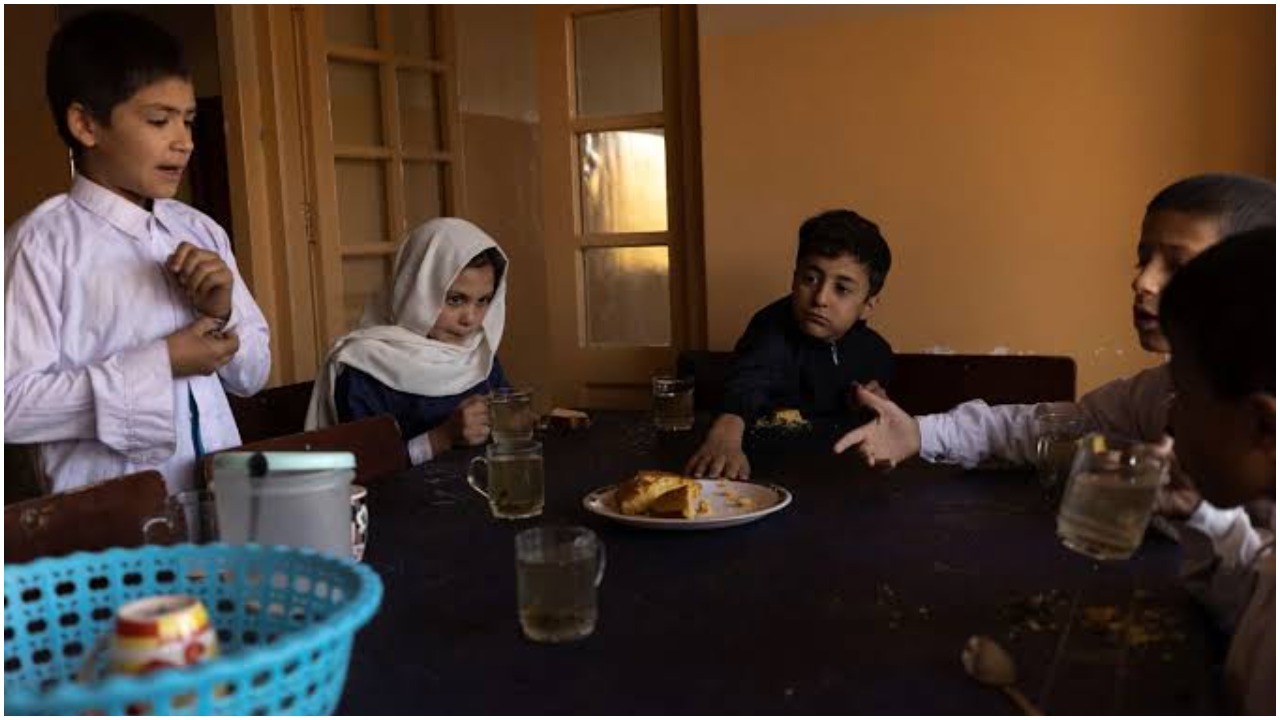Million Afghan children at risk of dying amid acute malnutrition: WHO
November 12, 2021

- Around 3.2 million Afghan children likely to suffer from acute malnutrition by the end of this year.
- WHO spokesperson Margaret Harris says it's an uphill battle as starvation grips the country.
- A UN official warns that millions of Afghans, including children, could die of starvation unless urgent action is taken to pull Afghanistan back from collapsing.
GENEVA: Around 3.2 million Afghan children are likely to suffer from acute malnutrition by the end of this year, with 1mn of them at risk of dying, a World Health Organisation spokesperson said Friday.
"It's an uphill battle as starvation grips the country," Margaret Harris told Geneva-based journalists by telephone from the capital Kabul. "The world must not and cannot afford to turn its back on Afghanistan."
Earlier, a senior United Nations official warned that millions of Afghans, including children, could die of starvation unless urgent action is taken to pull Afghanistan back from the brink of collapse, as he called for frozen funds to be freed for humanitarian efforts.
World Food Programme (WFP) Executive Director David Beasley told Reuters that 22.8 million people — more than half of Afghanistan's 39 million population — were facing acute food insecurity and "marching to starvation" compared to 14 million just two months ago.
"Children are going to die. People are going to starve. Things are going to get a lot worse," he said in Dubai.
Afghanistan was plunged into crisis in August after Taliban fighters drove out a Western-backed government, prompting donors to hold back billions of dollars in assistance for the aid-dependent economy.
The food crisis, exacerbated by climate change, was dire in Afghanistan even before the takeover by the Taliban, whose new administration has been blocked from accessing assets held overseas as nations grapple with how to deal with the group.
"What we are predicting is coming true much faster than we anticipated. Kabul fell faster than anybody anticipated and the economy is falling faster than that," Beasley said.
He said dollars earmarked for development assistance should be repurposed for humanitarian aid, which some nations have already done, or frozen funds be channelled through the agency.
"You've got to unfreeze these funds so people can survive."
The UN food agency needs up to $220 million a month to partially feed the nearly 23 million vulnerable people as winter nears.
Many Afghans are selling possessions to buy food with the Taliban unable to pay wages to civil servants, and urban communities are facing food insecurity on levels similar to rural areas for the first time.
WFP tapped its own resources to help cover food aid through to December after some donors failed to meet pledges, Beasley said, adding that with government appropriations already out, funds may have to be redirected from aid efforts in other countries.











